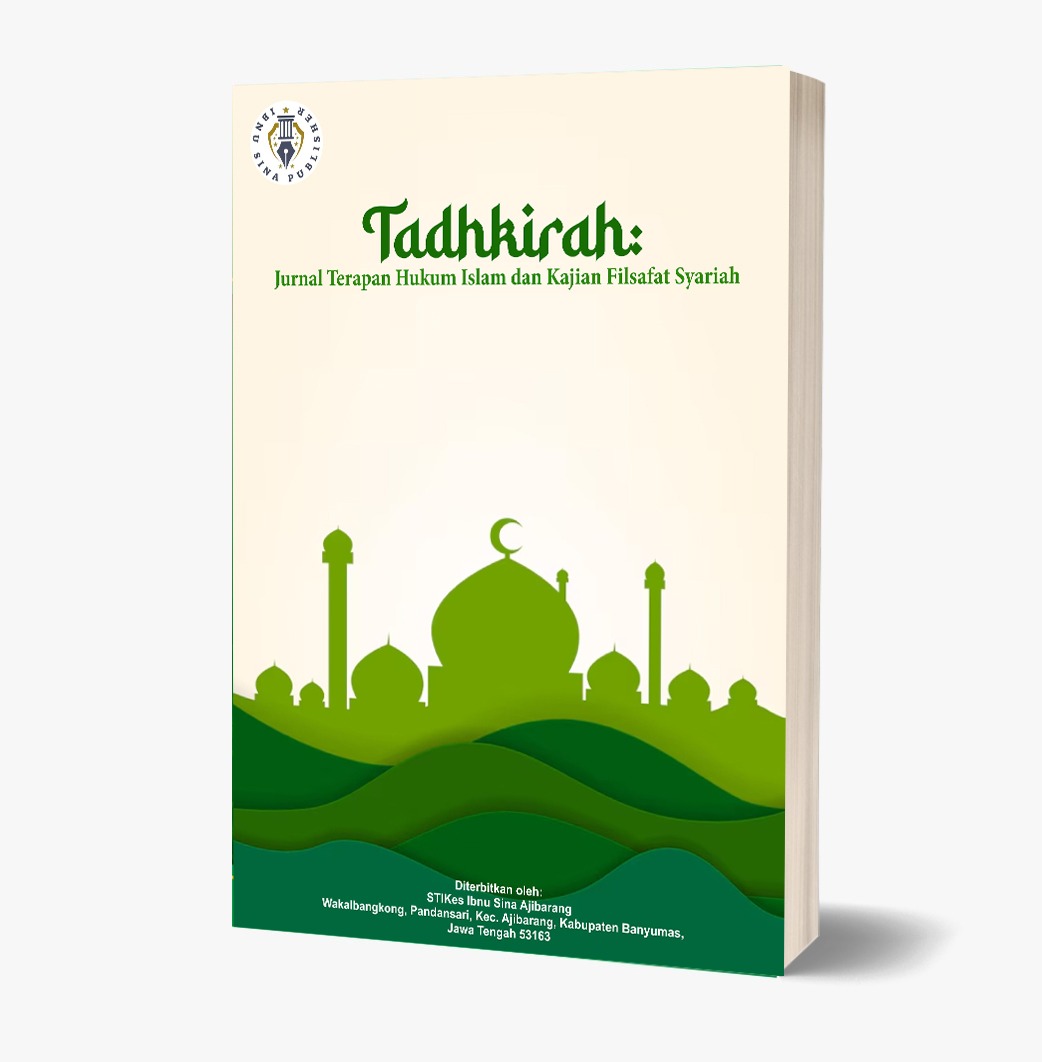Ekologi Sosial dalam Perspektif Hadis
DOI:
https://doi.org/10.59841/tadhkirah.v2i2.220Keywords:
hadith science, social ecology, environmental hadith, Islamic methodology, prophetic traditions, ecological jurisprudenceAbstract
This study examines social ecology from the perspective of hadith science ('ulum al-hadith), focusing on methodological analysis of prophetic traditions related to environmental and social issues. Using hadith criticism methodology, this research analyzes the authenticity, context, and semantic dimensions of ecological hadiths to construct a comprehensive framework of Islamic environmental ethics. The study applies classical hadith evaluation criteria including sanad analysis, matn criticism, and contextual interpretation to examine how prophetic traditions address the intersection of social and ecological concerns. Findings indicate that authentic hadiths provide a robust foundation for social ecological principles, with particular emphasis on stewardship (khilafah), balance (mizan), and distributive justice in resource management. This research contributes to the development of hadith-based environmental jurisprudence and offers methodologically sound approaches to understanding Islamic ecological ethics.
Downloads
References
Abdolkarim Soroush. (2000). The evolution and devolution of religious knowledge. In M. Sadri & A. Sadri (Trans. & Eds.), Reason, freedom, and democracy in Islam. Oxford University Press.
Abu ’Ubayd al-Qasim ibn Sallam. (1988). Kitab al-Amwal. Dar Al-Fikr.
Abū al-Faḍl Aḥmad bin ‘Alī bin Ḥajar Shihāb ad-Dīn al-‘Asqalānī asy-Shāfi‘ī. (1435 H). Tahdhīb at-Tahdhīb. Mu’assasat ar-Risālah.
Abu Dawud Sulayman ibn al-Ash’ath. (n.d.). Sunan Abi Dawud.
Abu Hamid Muhammad ibn Muhammad al-Ghazali. (1957). Ihya’ ‘Ulum al-Din. Dar al-Ma’arif.
Abu Hamid Muhammad ibn Muhammad al-Ghazali. (1993). Al-Mustasfa min ‘Ilm al-Usul. Dar Al-Kutub Al-Ilmiyyah.
Abu Ishaq Ibrahim ibn Musa al-Shatibi. (1975). Al-Muwafaqat fi Usul al-Shari’a. Dar al-Ma’arif.
Abu Sulayman Hamd ibn Muhammad al-Khattabi. (1932). Ma‘alim al-Sunan. Matba’a al-’Ilmiyya.
Ahmad ibn Hanbal. (1999). Al-Musnad. Dar Al-Fikr.
al-Albani, M. N. (1988). Sahih al-Jami’ al-Saghir. al-Maktab al-Islami.
Al-Bukhari. (1414 H). Sahih Bukhari. Dar Al-Fikr.
Al-Munawi. (n.d.). Faidh al-Qadir.
al-Qaradawi, Y. (n.d.). Ri’āyah al-Bī’ah fī al-Islām.
al-San‘ani. (n.d.). Subul al-Salam.
Gufron, S. (2020). Pengertian hadis tematik dan sejarah pertumbuhannya. 1–13.
Harahap, B. I. (2023). Implikasi hadits istiqomah dalam semangat beragama (Analisis perspektif psikologi). Repository UIN, 234.
Ibn Hajar al-’Asqalani. (1379 H). Fath al-Bari bi Sharh Sahih al-Bukhari. Dar al-Ma’rifa.
Ibn Qudamah. (n.d.). Al-Mughni.
Ibn Rushd, M. ibn A. (2004). Bidayat al-Mujtahid wa Nihayat al-Muqtasid. Dar al-Hadis.
Imam al-Nawawi. (n.d.). Al-Majmu‘ Syarḥ al-Muhadzdzab.
Imam al-Syafi‘i. (n.d.). Al-Umm.
Khalid, F. (n.d.). The disconnection between Islam and ecology.
Limbong, R., Luthfi, A. A. A., Yufitri, S., Chandra, A. F., & Bin Ghazali, M. (2023). Kesalehan ekologis masyarakat Muslim Pekanbaru: Studi terhadap hadis dalam upaya meminimalisir kerusakan lingkungan. Harmoni, 22(1), 70–92. https://doi.org/10.32488/harmoni.v1i22.617
Llewellyn, O. A.-R. (2003). The basis for a discipline of Islamic environmental law. In R. C. Foltz (Ed.), Islam and ecology (Vol. 185). Harvard University Press.
Muhammad ibn ’Isa al-Tirmidhi. (n.d.). Sunan al-Tirmidhi, dengan komentar dalam Tuhfat al-Ahwadhi oleh al-Mubarakfuri. Dar al-Kutub al-’Ilmiyya.
Muslim ibn al-Hajjaj. (n.d.). Sahih Muslim, Kitab al-Dhikr wa al-Du’a wa al-Tawba wa al-Istighfar, Hadis No. 2742.
Nasr, S. H. (1968). The encounter of man and nature: The spiritual crisis of modern man. George Allen and Unwin.
Nawawi. (1392 H). Syarḥ Ṣaḥīḥ Muslim. Dar Ihya al-Truth al-Arabi.
Qayyim, I. (n.d.). Zād al-Ma‘ād.
Sardar, Z. (1985). Islamic futures: The shape of ideas to come. Mansell Publishing.
Sari, E. (2022). Langkah-langkah studi hadis tematik. Jurnal Al-Dirayah, 9(1).
Supriyadi, S. (2017). Community of practitioners: Solusi alternatif berbagi pengetahuan antar pustakawan. Lentera Pustaka: Jurnal Kajian Ilmu Perpustakaan, Informasi dan Kearsipan, 2(2), 83. https://doi.org/10.14710/lenpust.v2i2.13476

















